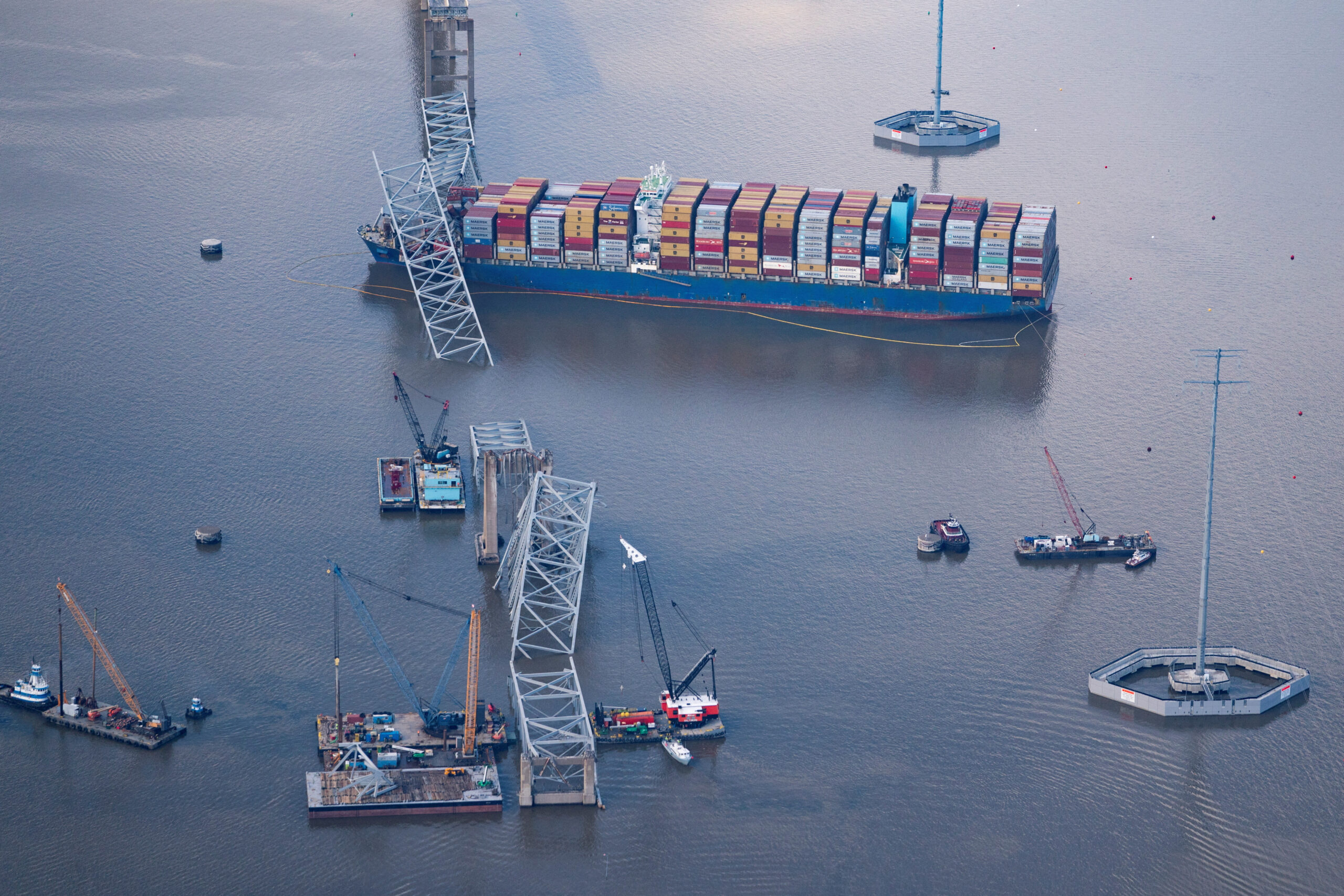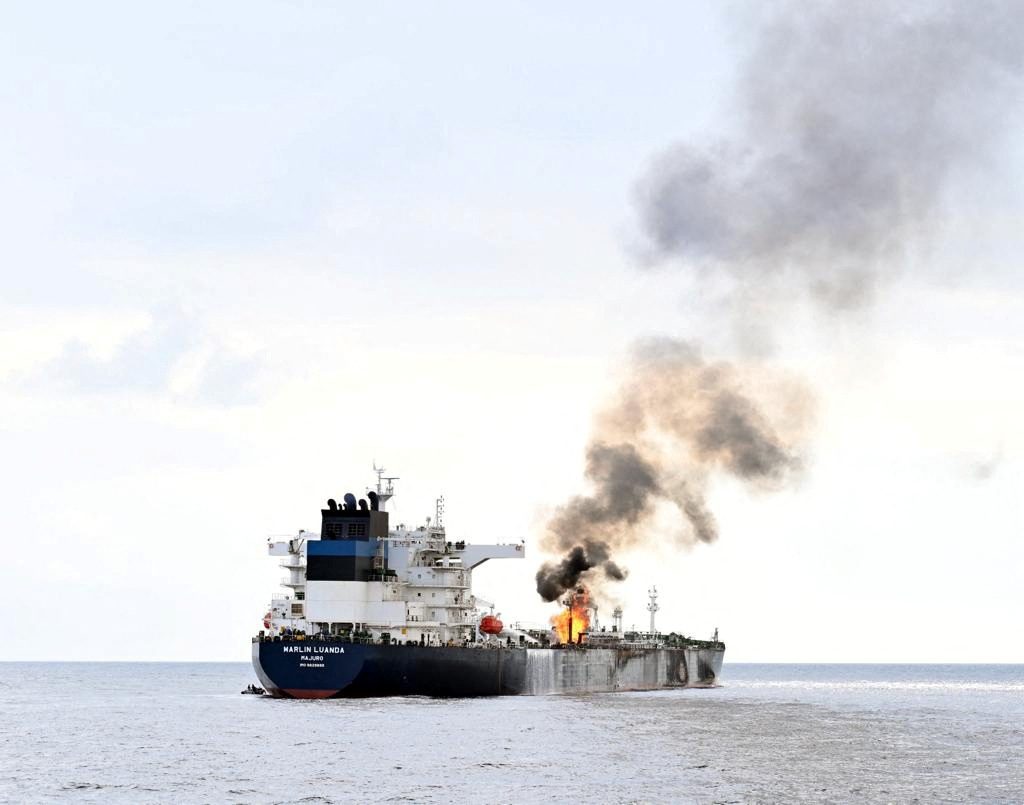U.S.-flagged tanker file photo courtesy AMP.
By Naomi Christie and Dan Murtaugh
April 10 (Bloomberg) — Houston and the rest of the U.S. Gulf Coast have more crude oil than the region can handle.
Stockpiles in the region centered on Houston and stretching to New Mexico in the west and Alabama in the east rose to 202 million barrels in the week ended April 4, the most on record, Energy Information Administration data released yesterday show.
Storage tanks are filling as new pipelines carry light, sweet oil found in shale formations to the coast and U.S. law keeps companies from moving it out. Most crude exports are banned and the 13 ships that can legally move oil between U.S. ports are booked solid. The federal Jones Act restricts domestic seaborne trade to vessels owned, flagged and built in the U.S. and crewed by citizens.
“You can’t get all that light, sweet crude out, it’s all kind of piling up,” said Jeff McGee, the founder of Makai Marine Advisors LLC in Dallas, who previously led research at two shipbrokers and worked as a refinery planner. “You couldn’t find a spot Jones Act ship to save your life right now.”
The glut will make prices of benchmark West Texas Intermediate oil $13 a barrel cheaper later this year than Brent, the international benchmark, according to Bank of America Corp. forecasts. The EIA forecasts the average gap for 2014 will be about $9. WTI traded at a discount to Brent of $4.17 a barrel at 12:20 p.m. on the ICE Futures Europe exchange in London.
Companies including TransCanada Corp. and Enterprise Products Partners LP built and reversed pipelines that helped a carry a record amount of oil to the Gulf Coast from the Midwest last year. Total U.S. production reached 8.23 million barrels a day last week, the highest level since May 1988.
Inadequate Fleet
Thirteen tankers can haul crude domestically out of a global fleet of about 2,400, according to the U.S. Department of Transportation Maritime Administration. The Jones Act, a 94- year-old law, requires all domestic seaborne trade to be shipped on vessels crewed by citizens and owned, flagged and built in the U.S.
Meanwhile, a 1975 law bans most overseas U.S. crude shipments. While supplies to Canada, one of the exceptions allowed, have risen to a record, the U.S. exports 3 percent of the oil it produces, Energy Department data show.
Neither law will change soon. Mariners’ unions and domestic shipping companies say the Jones Act is critical to national security. Lawmakers are discussing ways to extend rather than curtail it, such as by requiring liquefied natural gas exports to go on U.S. ships.
Murkowski Call
Even as Senator Lisa Murkowski of Alaska, the senior Republican on the Energy and Natural Resources Committee, added her support to Exxon Mobil Corp.’s call to lift restrictions on crude exports, other lawmakers in Congress say they’re concerned shipments would increase gasoline prices at home.
“The ban on exporting U.S. crude is mainly responsible for the pileup of crude stocks on the Gulf Coast,” said Harry Tchilinguirian, head of commodity markets at BNP Paribas, France’s largest bank. “The Jones Act is an additional hurdle in trying to move that surplus crude on the Gulf Coast to other areas of the U.S.”
The glut may start to shrink in the second quarter as refineries ramp up to meet summer gasoline demand. Plants on the Gulf Coast handled a record 7.92 million barrels a day of crude last year, equal to almost 80 percent of Chinese consumption in 2012, according to IEA and EIA data compiled by Bloomberg. Refinery runs in the region rose by 167,000 barrels a day to 8.22 million last week, EIA data show.
Falling Imports
Swelling inventories may also be curbed by falling crude imports, which last year averaged the lowest since 1996. U.S. refineries also exported a record 3.1 million barrels a day of gasoline, diesel and other petroleum products last year, EIA data show. The U.S. allows product exports.
The American Petroleum Institute, which represents the U.S. oil and gas industry in Washington, is developing legal challenges to the crude export restrictions. Overturning the 1975 law would allow the U.S. to ship 1.5 million barrels a day and become one of the 10 largest crude exporters, according to JBC Energy, a Vienna-based consulting firm.
–With assistance from Grant Smith in London.
Copyright 2014 Bloomberg.
Unlock Exclusive Insights Today!
Join the gCaptain Club for curated content, insider opinions, and vibrant community discussions.

 Join The Club
Join The Club













